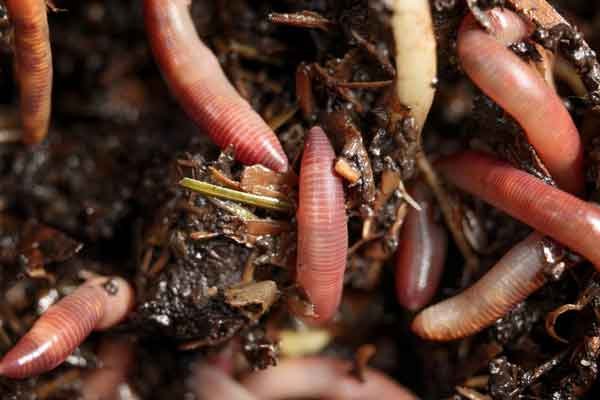
Let’s dig a bit deeper into how earthworms do this. They’re not just wriggling around aimlessly; they have an important job. By munching on organic matter, they help turn it into compost that plants need. This process is crucial for maintaining healthy ecosystems. So, if you’ve ever admired a lush garden or a thriving field, you’ve got earthworms to thank! Now, grab a cup of coffee, and let’s explore the fascinating world of earthworms and their composting magic.
What Do Earthworms Eat?
Earthworms are not picky eaters. They’re nature’s trash collectors and can chow down on a wide variety of organic materials. Think about the leftovers in your kitchen that you toss into the compost bin. Earthworms would love those! They feast on:
- Dead leaves
- Grass clippings
- Food scraps
- Old plants
- Animal manure
They consume this organic matter in a neat little process. First, they consume it through their mouths. Then, thanks to their muscular gizzards, they grind it down. It’s like having a built-in blender for their food! As they eat, they also take in soil particles, which adds to the mix. You might be wondering how this simple diet can lead to such powerful results. Well, it all comes down to the unique digestive system of the earthworm.
The Earthworm Digestive System: A Marvel of Nature
The journey of organic material through an earthworm’s body is nothing short of remarkable. When the worms consume organic waste, it travels through a series of specialized parts: the crop, gizzard, and intestine.
– **Crop**: Here, the organic material is stored. It’s similar to how our stomach holds food before digestion.
– **Gizzard**: This is where the real magic happens. Earthworms grind the organic matter using tiny stones they’ve swallowed. It’s like a natural blender that breaks everything down into smaller pieces.
– **Intestine**: Once the material is ground up, it moves into the intestine, where nutrients are absorbed and waste is prepared for excretion.
Let me explain why this is so critical. As the earthworm digests food, it breaks it down into simpler substances that plants can easily absorb. This process enriches the soil with nutrients, making it more fertile and healthier for plant growth. Talk about multitasking!
How Earthworms Contribute to Soil Health
So, why should you care about how earthworms break down organic material? Here’s the thing: healthy soil is essential for growing plants, which provide us with food, oxygen, and even beauty in our surroundings. Earthworms improve soil structure and increase its ability to hold water. They create tunnels as they burrow, allowing air and water to reach deeper layers of soil.
These tunnels also help prevent soil erosion. When rain falls, instead of washing away the top layer of soil, the water can seep into these spaces, replenishing the earth.
Additionally, earthworm castings (the fancy term for their poop) are a powerhouse of nutrients! They are rich in nitrogen, phosphorus, and potassium—key elements that plants crave. So, when you think about gardening, don’t forget to appreciate the role earthworms play in keeping the soil healthy and vibrant.
The Role of Microorganisms: Teamwork in Composting
Earthworms don’t work alone. They have an entire team of microorganisms, like bacteria and fungi, assisting them in the breakdown of organic material. When earthworms consume matter, they break it down into smaller pieces, making it easier for these tiny helpers to do their job.
Microorganisms further decompose the smaller particles, converting them into nutrients plants can absorb. This teamwork is vital for enriching the soil. Honestly, it’s a beautifully complex system where each player has an important part.
Now, you might be curious about the rate of decomposition. It can vary based on factors like temperature, moisture, and the type of organic material. For instance, softer materials like fruit peels break down faster than tougher ones like tree branches. Earthworms can adapt to these conditions, making them highly effective composters.
Creating a Worm-Friendly Environment
If you’re inspired to harness the power of earthworms in your own garden, it’s pretty easy! Creating a worm-friendly environment starts with a few simple steps:
1. **Build a Compost Bin**: Use a bin with aeration holes to allow air in. This keeps things fresh.
2. **Add the Right Materials**: Fill it with a mix of green materials (like fruit scraps) and brown materials (like shredded paper or dried leaves).
3. **Maintain Moisture**: Earthworms thrive in moist environments. Think of it like keeping a sponge wet but not soaking.
4. **Avoid Chemicals**: Keep your compost free from pesticides and chemicals. Remember, worms are sensitive, and harsh substances can harm them.
With this setup, you’ll create a perfect home for earthworms, and before you know it, they’ll be hard at work breaking down organic materials and enriching your garden soil.
The Bigger Picture: Why This Matters
Understanding how earthworms break down organic material isn’t just about gardening for the sake of beauty. It’s about ecological balance. In a healthy ecosystem, earthworms contribute to nutrient cycling, soil structure, and plant health. Moreover, their presence is often a sign of a thriving environment.
As we face challenges like climate change and soil degradation, recognizing the importance of earthworms can make a real difference. By promoting their habitat and reducing our reliance on chemical fertilizers, we can actively participate in protecting our planet.
Think about all those little choices we make every day — from how we garden to what we compost. Each small effort can contribute to a healthier environment, which ultimately benefits us all.
In conclusion, **earthworms** are essential players in the grand scheme of nature. Their ability to break down organic material not only enriches our soil but also supports life on Earth. So next time you spot a worm wriggling in the garden, give a little nod of appreciation; they’re doing some pretty amazing work under our feet!
